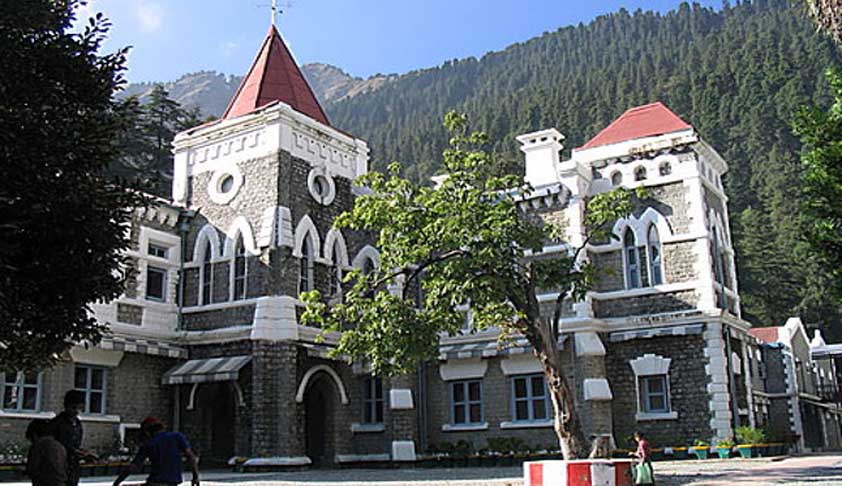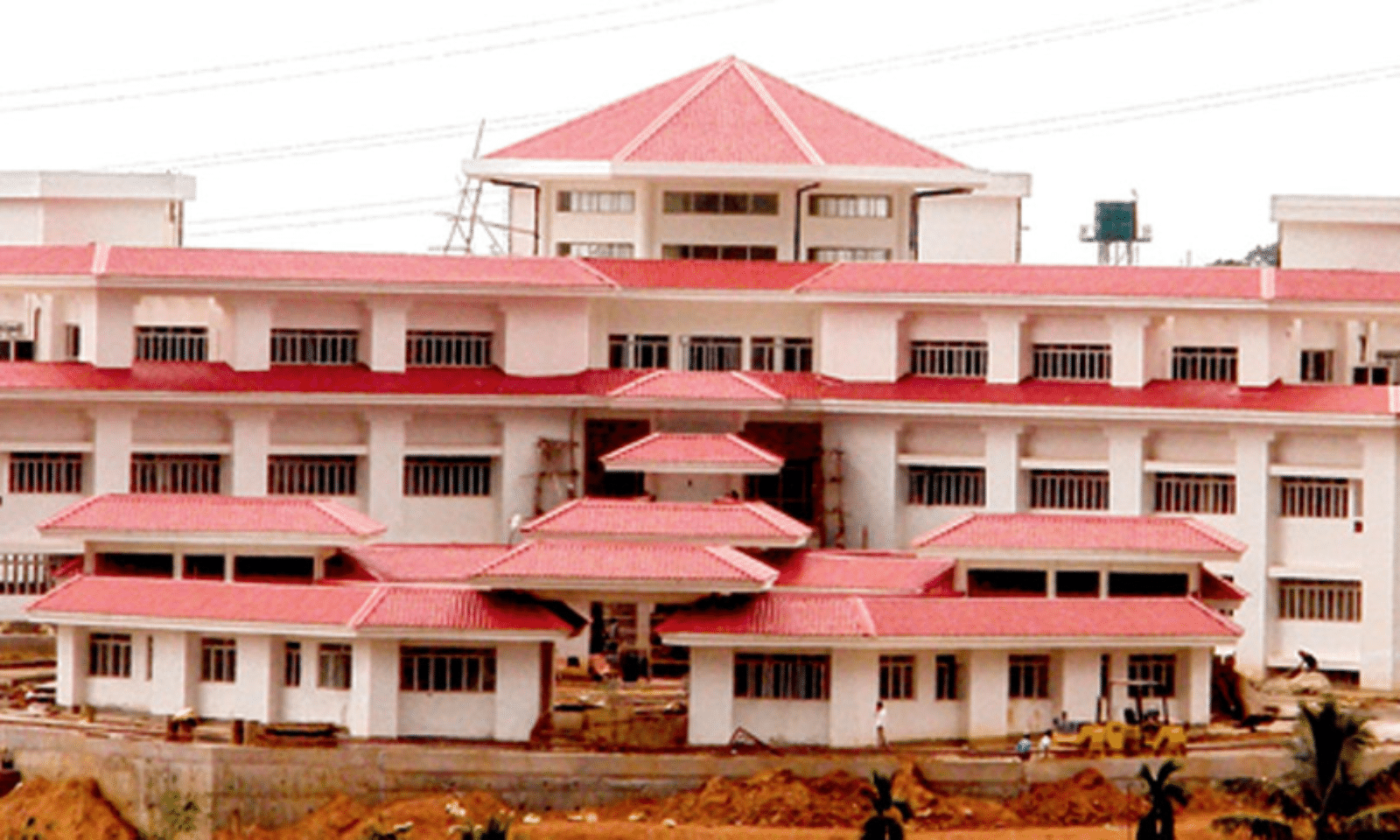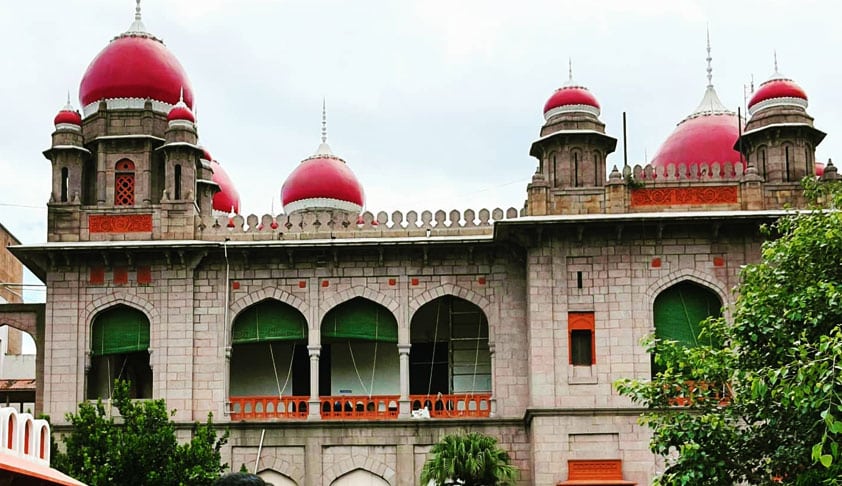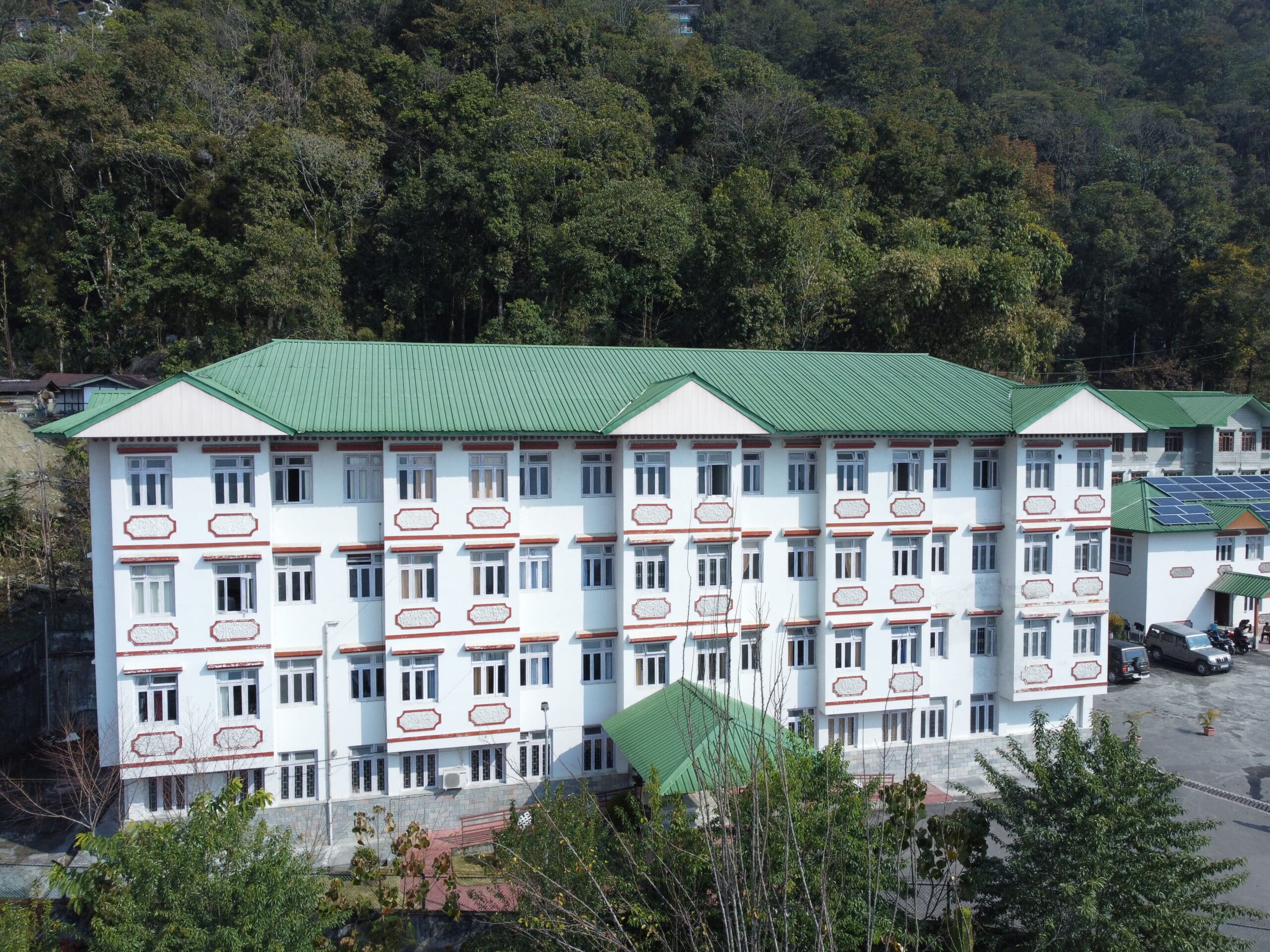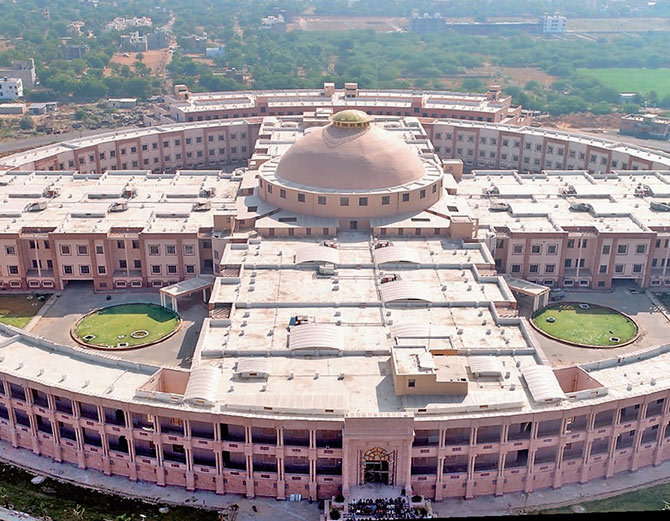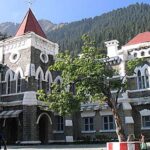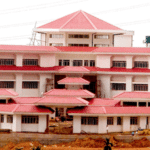- Official Website – https://hcraj.nic.in/hcraj/
- Contact –
Rajasthan High Court Principal Seat Jodhpur
hc- [email protected]
0291-2888500-04
Rajasthan High Court Bench Jaipur
hcjaipur-[email protected]
0141-2227124
A cluster of Princely States with an oasis known as Ajmer-Merwara, a British India Territory, was given geographical expression as Rajputana. These Twenty and the odd Rajputana States before the 20th Century AD were dynastic and the Rulers were the fountainhead of all Executive, Legislative, and Judicial Authority in the States. As soon as the country got freedom from British Imperialism, the process of integration of the princely States to form bigger units was initiated.
The State of Rajasthan was formed during the period March 17, 1948, and January 25, 1950, by the integration of 19 Princely States. The Union of Rajasthan was inaugurated at Jaipur by Sardar Vallabh Bhai Patel on March 30, 1949. At that time Jaipur, Jodhpur, Udaipur, Bikaner, and Kota were the leading states with the more or less British style of Administrative setup. They had their own High Courts with a subordinate judicial system. Before the inauguration of the new State, a committee consisting of Shri B.R.Patel, the then Chief Secretary to the Government of PEPSU, Lt. Col. T.C.Puri, Director of Health Service, and Shri S.P.Sinha, Superintending Engineer, CPWD, was constituted to resolve the issues relating to the location of the capital and the seat of the High Court. The committee submitted its report on March 27, 1949, with a recommendation that Jaipur should be made capital of the new State and the High Court should be located at Jodhpur. In the newly created State, five High Courts were functioning at Jaipur, Jodhpur, Bikaner, Udaipur (being capital of United Rajasthan with a bench at Kota), and Alwar (being capital of Matsya State) with a total strength of 20 judges. The Rajasthan High Court Ordinance, 1949 abolished these different jurisdictions and provided for a single High Court for the entire State. Section 10(1) of the Ordinance laid down that “the High Court shall sit at Jodhpur and such other place or places, if any, as the Rajpramukh may from time to time appoint either permanently or for a specified period”. Sub-section (2) of Section 10 empowered the Chief Justice to nominate one or more of such judges of the High Court to sit at such place or places as he may direct. In exercise of powers under sub-section(3) of Section 1, the Rajpramukh of the State issued a notification on August 25, 1949, fixing the 29th day of August 1949 as the date for the inauguration of the High Court of Judicature for Rajasthan at Jodhpur. On the same day the Rajpramukh exercising the powers conferred by sub-section (1) of Section 10 of the Ordinance directed that until further orders the High Court of Judicature for Rajasthan shall also sit simultaneously (1) at Jaipur to dispose of the work arising in the Jaipur and Kota divisions and (2) at Udaipur to dispose of the work arising in Udaipur division.

The High Court was duly inaugurated on August 29, 1949. In an impressive function, presided by Rajpramukh His Highness Maharaja Sawai Man Singh, the oath was administered to Hon’ble Justice Kamal Kant Verma (former Chief Justice of Allahabad High Court and former Chief Justice of Udaipur High Court) as Chief Justice along with 11 other judges. These 11 judges represented most of the princely States. Justice Lala Nawal Kishore and Justice Kunwar Amar Singh Jasol were from Jodhpur, Justice Kanwar Lal Bapna, and Justice Mohd. Ibrahim was from Jaipur, Justice Jawan Singh Ranawat and Justice Sardul Singh Mehta were from Udaipur, Justice Durga Shankar Dave was from Bundi, Justice Trilochan Dutt was from Bikaner, Justice Anand Narain Kaul was from Alwar, Justice K.K.Sharma was from Bharatpur and Justice Kshemchand Gupta was from Kota.
On September 3, 1949, in modification of the previous notification dated August 25, 1949, the Rajpramukh issued a further notification directing that the High Court of Judicature for Rajasthan shall also sit simultaneously at Bikaner and Kota to dispose of the cases pending before Bikaner High Court and Kota bench of the High Court of the Former United Rajasthan respectively. Under this notification, no authority was given to entertain new cases other than the applications for revision or readmission.

On the 26th day of January 1950, the Constitution of India was enforced wherein Rajasthan became a Part “B” State. The strength of High Court judges for the “B” category was reduced and it was mandated that the judges must conform to the eligibility provided under the Constitution of India. As a consequence, some of the judges including Chief Justice Kamal Kant Verma had to lay down their office. Against the vacancies caused by the retirement of Justice Nawal Kishore and Justice Mohd. Ibrahim, two eminent lawyers viz. Shri Indernath Modi and Shri D.M.Bhandari were elevated to the bench.
On May 8, 1950, the Rajpramukh issued a notification under Section 10 of the Ordinance directing that the High Court of Judicature for Rajasthan shall, from the 22nd day of May 1950 cease to sit at Bikaner, Kota, and Udaipur. Although the benches at Bikaner, Kota, and Udaipur were abolished, the Jaipur bench was allowed to continue to function with jurisdiction over Jaipur and Kota divisions.

The parliament in the 7th year of the Republic of India enacted the States Reorganisation Act, 1956 to provide for reorganization of the States of India and for matters connected therewith. By Section 50 of the States Reorganisation Act, 1956, the High Courts of all the then existing Part “B” States and courts of the Judicial Commissioners for Ajmer, Bhopal, Kuchh, and Vindhyapradesh were abolished. Section 49(2) provided inter-alia for the establishment of a High Court of Judicature for Rajasthan. As per Section 49 of the Act of 1956 a new High Court came into being as the High Court of Rajasthan. Prior to it, by a telegram dated October 27, 1956, the Government of India informed the Rajasthan Government that the President had declared that Jodhpur shall be the principal seat of the High Court in the new State of Rajasthan with effect from November 1, 1956, and the High Court of new State could function only at that place unless the Chief Justice, with the approval of Governor, issues a notification under Section 51(3) of the Act establishing temporary benches at other places. A notification accordingly was issued by the then Chief Justice of Rajasthan on November 1, 1956, establishing a temporary bench of the High Court at Jaipur.
Under the Act of 1956, the State of Ajmer (then a Part “C” State), the Tallukas of Abu, and sunnel-Tappa were added to Rajasthan and Sironj subdivision of Kota district was transferred to Madhya Pradesh. As a result of the merger of Ajmer on November 1, 1956, the Government of India decided to have further consideration with regard to any change in the capital of State and the seat of the High Court of Rajasthan. Accordingly, under an order dated 10/11th July 1957, a committee consisting of Sarva Shri P.Satyanarain Rao, V.Vishwanathan, and B.K.Gupta was constituted. The committee submitted its report on February 26, 1958, recommending that the capital should not be shifted from Jaipur and the principal seat of the High Court should continue to be at Jodhpur. The committee also recommended abolishing the existing bench of the Rajasthan High Court at Jaipur. On acceptance of the recommendations, the Jaipur bench of the Rajasthan High Court was abolished in the year 1958.
The abolition of the Rajasthan High Court Bench at Jaipur caused a huge dissatisfaction among the large section of people in Eastern Rajasthan, especially in the city of Jaipur. Different Bar Associations and other organizations demanded to have a permanent bench of the High Court at Jaipur. This demand came to be satisfied under “the High Court of Rajasthan (Establishment of a Permanent Bench at Jaipur) Order, 1976”. On December 8, 1976, the President of India exercising powers conferred by sub-section(2) of Section 51 of the States Reorganisation Act, 1956, after having a consultation with the Governor of Rajasthan and the Chief Justice of High Court of Rajasthan, made the order aforesaid establishing a permanent bench of the High Court at Jaipur. The bench is having jurisdiction in respect of the cases arising in the districts of Ajmer, Alwar, Bharatpur, Dhaulpur, Kota, Bundi, Jhalawar, Baran, Jaipur, Jhunjhnun, Sawaimadhopur, Karauli, Sikar, Tonk, and Dausa. Under the order of 1976, discretion is also given to the Chief Justice to order that any case or class of cases arising in any district within the jurisdiction of Jaipur Bench shall be heard at Jodhpur.

The Rajasthan High Court is presently having sanctioned strength of 50 judges. A new building of the High Court has already been constructed at Jaipur and the construction work for a new majestic building for High Court at Jodhpur is in progress.
By Hon’ble Mr. Justice Govind Mathur

